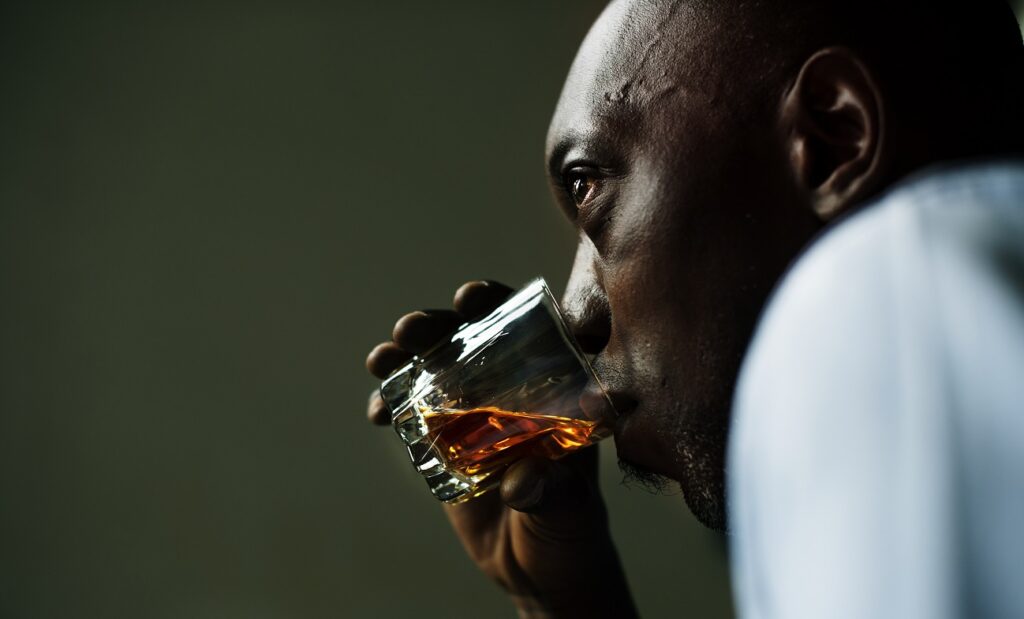Drug and Alcohol Rehab in Peebles
Drug and alcohol consumption as well as problems associated with addiction (also known as substance addiction, substance use disorder, substance misuse, and so forth) wreaks havoc not only on the United Kingdom but on Scottish communities in particular.
- In 2020, Scottish communities saw 1,339 drug-related deaths. This was the highest year on record for this type of fatality.
- In the following year, Scotland saw 1,330 deaths due to drug use, and while this figure is lower, it is only lower by 9 fatalities. This makes 2021 the second-highest year for drug-related deaths in the country.
The Scottish government has also conducted many studies to assess the damages of drug and alcohol addiction.
- Studies show that the average adult in Scotland consumes around 19 units of alcohol per week, which amounts to around 100 bottles of wine or 40 bottles of vodka per year.
- This level of alcohol consumption exceeds the UK guideline significantly, meaning that there is a high rate of people in Scotland who are suffering from alcohol dependence, and many more are susceptible to its effects.
- This study also estimates that at any time in Scotland, there are around 55,000 drug users in the country.

As if these statistics are not shocking enough, the statistics for Peebles in particular do not provide much optimism.
- In the Scottish Borders, which includes Peebles, around 31% of men (or 1 in 3) are suffering from alcohol dependence and are drinking at hazardous levels.
- 2019 to 2020 in the Scottish Borders and Peebles saw almost 600 overnight stays at hospitals due to alcohol-related illnesses and injuries.
Furthermore, the same study claims that areas of the Scottish Borders, especially Peebles, are more negatively affected by alcohol-related harm than other areas of the country.
If you are someone who is suffering from addiction, you can seek professional help at a drug and alcohol rehab in Peebles.
What is Drug and Alcohol Addiction?

A drug and alcohol addiction, or substance dependence, is a serious neurological and physiological condition. It is categorised by neuroscientists and health practitioners as a chronic brain disease.
When suffering from an addiction, the addicted person becomes physically and psychologically dependent on the addictive substance. Not only can the symptoms of addiction be discomforting, but they can also kill the person who is suffering.
This is because the chemical structures in the brain, when suffering from addiction, have been altered. The dopaminergic reward pathways in the brain, responsible for stimulating us and facilitating feelings of happiness and pleasure, become severely dependent on addictive substances to function.
This means that the addicted person will experience discomforting physiological cravings to consume these substances to function and experience these feelings of happiness.
Some people may develop an addiction because they have inherited addictive traits from their parents. Others may develop an addiction because of their lifestyle habits, or because they are suffering from mental illnesses and turn towards drugs and alcohol to self-medicate.
Symptoms of Addiction

The withdrawal symptoms associated with addiction can be divided into two categories; physical and psychological. Different substances will yield different symptoms, as will the person’s unique characteristics and traits.
1. Physical Symptoms
Physical withdrawal symptoms can come in the form of headaches, migraines, fatigue, abdominal pain, vomiting, diarrhoea, seizures, and strokes, and they can even lead to death.
Because of the severe health complications that physical withdrawal symptoms can cause, patients are highly encouraged to undergo a medicated detox at their treatment centre in Peebles.
Furthermore, even those who are moderate drinkers or drug consumers may suffer from long-term health complications. Many drugs and alcoholic substances are carcinogenic, meaning that they can cause cancer.
Furthermore, liver disease is the leading cause of avoidable death in the United Kingdom, and alcohol-related.
2. Psychological Symptoms
Psychological withdrawal symptoms, although problematic, are considered to be less problematic than physical symptoms because they cannot lead to mortality. However, they can certainly lead to a range of long-term problems which can severely affect someone’s quality of life. Symptoms include anxiety, depression, paranoia, irritability, and so on.
Long-term psychological symptoms involve the development of a range of mental health issues. If the addicted person continues their consumption habits and does not seek help for their illness, they may develop mental health conditions such as clinical anxiety and depression, delirium, schizophrenia, and so on. Some of these are reversible whereas others are not.
3. Social Issues Related to Addiction
Furthermore, other indirect symptoms need to be considered when treating someone suffering from addiction. Many people who suffer from addiction also suffer from social issues, whether it be relationship breakdown, social isolation, committing crimes, and so on.
It is estimated that from 2020 to 2021, there were 43,255 adults in alcohol and drug treatment in prisons. Additionally, studies show that around 66% of homeless people attribute substance use disorder as the reason for their living situation.
Entering a Rehab Centre in Peebles

To enter a drug or alcohol rehab in Peebles, whether as an outpatient or at a residential rehab clinic, Rehab Recovery can help facilitate your road to recovery.
By searching for You have already made a monumental step by searching for options to assist your recovery from addictions process may seem overwhelming, we are here to assist your recovery each step of the way.
You can contact Rehab Recovery by picking up the phone and dialling 0800 088 66 86 or +44 330 333 6197 internationally. You will be greeted by a friendly and trained member of our team, whose purpose is to answer any questions or concerns that you may have.
Only when you are ready will we ask you to complete a health assessment which is necessary for the referral and admission process. This will be done swiftly and casually over the phone, and free of charge. The health assessment will only require you to answer a set of questions about your addiction history, medical history, physical and mental health, and so on.
Inpatient vs Outpatient Treatment in Peebles

Patients can enter their rehab in Peebles either as an inpatient or an outpatient, and there are notable differences. If a patient is suffering from a mild form of addiction, they may be advised to undergo outpatient treatment (but will also benefit from inpatient treatment).
Patients who are suffering from moderate to severe forms of addiction are highly advised to undergo treatment as an inpatient at a residential rehab.
Outpatient Treatment
Outpatient treatment can offer patients an inexpensive option to recover from their drug and alcohol addiction. Patients will typically spend around 6 hours per week undergoing therapy and counselling, or up to 30 hours per week if they are undergoing the intensive outpatient programme. It offers flexibility as it does not require patients to stay overnight at a rehab facility.
Inpatient Treatment
Inpatient treatment is thought to be the most effective form of treatment because it offers intensive, comprehensive, and personalised treatment programmes. This comprehensive rehab programme will help patients detoxify, undergo therapy, learn about relapse prevention planning, and so on.
Typically, patients will stay at their residential rehab for around 28 days as an inpatient, spending hours per day undergoing therapy to maximise their responsiveness to treatment methods.
Long-Term Recovery at a Rehab in Peebles

Entering a drug and alcohol rehab in Peebles is not only about overcoming the discomforting withdrawal symptoms associated with drug and alcohol addiction. While a medicated detox will certainly help patients overcome these symptoms, a drug and alcohol rehab is designed to help patients establish long-term recovery from their addiction.
Medicated Detox
A medicated detox will help patients overcome their withdrawal symptoms, making them able to proceed with the rest of the rehabilitation programme which can help them establish long-term recovery.
During the medicated detox, patients will spend around 7 to 10 days allowing the substance to withdraw from their body while they are receiving medication prescribed by an addiction physician to minimise the symptoms.
At a residential rehabilitation facility in Peebles, patients will receive support and supervision from a medical team. Outpatients can also undergo a home detox, however, this is less effective than a detox at a safe and medically supported facility such as a residential rehab in Peebles.
Therapeutic Approaches and Counselling at a Rehab in Peebles
After the patient has completed the detox phase, they will be in a healthier physical and psychological state. Now, they can proceed to undergo a range of complementary therapies, counselling, and relapse prevention planning to solidify their ability to sustain a lifestyle of abstinence.
Patients will undergo a range of therapies, such as behavioural therapy, individual therapy, group therapy, holistic therapy, and so on. Some of the most popular forms of therapy include:
- Cognitive Behavioural Therapy (CBT): As an example of individual therapy, CBT is highly popular because it offers maximised personalisation when it comes to addiction treatment. It is also used to treat mental illnesses such as anxiety disorder, depression, bipolar disorder, and much more. The purpose is to help patients understand how their traits negatively impact their own life, and how they can replace these cognitive and behavioural habits with healthier and positive ones.
- Dialectical Behavioural Therapy (DBT): DBT is similar to CBT, however, it specialises in helping patients overcome extremely intense thoughts and emotions. DBT patients are typically those who are suffering from trauma, anxiety, bipolar disorder, and so on. The purpose is to help them approach problems with much more rationality and self-awareness to improve their recovery and other facets of life.
- Holistic Therapy: Holistic Therapy is effective at improving the physical and spiritual health of patients, which makes it highly complementary to therapies such as DBT and CBT which aim to improve the mental health of patients. Examples of Holistic Therapy can include massages, aromatherapy, acupuncture, yoga, tai chi, equine therapy, adventure therapy, art therapy, music therapy, and so on. Because it is so wide-ranging and varied, it will cater to many different patients.
- Family Therapy: Family Therapy is an effective way to reinforce the patient’s support network. Not only does this therapy allow family members and friends to gain insight into their loved one’s addiction so they can adequately support them, but it can also offer them counselling to emotionally cope with their loved one’s recovery.
- Group Therapy: Group Therapy offers an opportunity for patients to share their experiences with addiction and recovery with other like-minded patients. This platform provides them with the ability to resonate with and gain insight into other patients’ experiences, and communication offers emotional purging. Patients tend to benefit significantly because of group therapy’s positive social reinforcement.
Aftercare Programme at a Rehab in Peebles

Regardless if the patient enters the rehab in Peebles as an inpatient or outpatient, they can undergo long-term recovery with an aftercare programme.
This aftercare programme will continue to support patients by granting them access to fellowship programmes such as Alcoholics Anonymous, Narcotics Anonymous, SMART Recovery, and so on, as well as helping them through employing the 12-Step Programme.
References
[1] Drug Related Deaths in Scotland in 2020, Report https://www.nrscotland.gov.uk/files/statistics/drug-related-deaths/20/drug-related-deaths-20-pub.pdf
[2] Drug Related Deaths in Scotland in 2021, Report https://www.nrscotland.gov.uk/files/statistics/drug-related-deaths/21/drug-related-deaths-21-report.pdf
[3] Alcohol and Drugs – Gov.Scot https://www.gov.scot/policies/alcohol-and-drugs/
[5] The Brain Disease Model of Addiction https://www.hazeldenbettyford.org/research-studies/addiction-research/brain-disease-model
[6] Statistics – British Liver Trust https://britishlivertrust.org.uk/about-us/media-centre/statistics/
[7] Alcohol and Drug Treatment in Secure Setting 2020 to 2021 https://www.gov.uk/government/statistics/substance-misuse-treatment-in-secure-settings-2020-to-2021/alcohol-and-drug-treatment-in-secure-settings-2020-to-2021-report
[8] Drugs and Alcohol – Crisis UK https://www.crisis.org.uk/ending-homelessness/homelessness-knowledge-hub/health-and-wellbeing/
[9] Cognitive Behavioural Therapy in Addiction Treatment – Rehab Recovery https://www.rehab-recovery.co.uk/addiction-treatments/cognitive-behavioural-therapy/
[10] DBT for Addiction Treatment – Rehab Recovery https://www.rehab-recovery.co.uk/addiction-treatments/dbt/
[11] Alternative & Holistic Therapy for Addiction – Rehab Recovery https://www.rehab-recovery.co.uk/addiction-treatments/alternative-holistic/
[12] Alcoholics Anonymous – Rehab Recovery https://www.rehab-recovery.co.uk/addiction-treatments/alcoholics-anonymous/
[13] What is Narcotics Anonymous? – Rehab Recovery https://www.rehab-recovery.co.uk/addiction-treatments/narcotics-anonymous/
[14] SMART Recovery: What Is It and How Can It Help? https://www.rehab-recovery.co.uk/addiction-treatments/smart-recovery-what-it-is-and-how-it-can-help/
[15] 12-Step Recovery Programme: What It Is and How It Can Help https://www.rehab-recovery.co.uk/addiction-treatments/12-steps/


